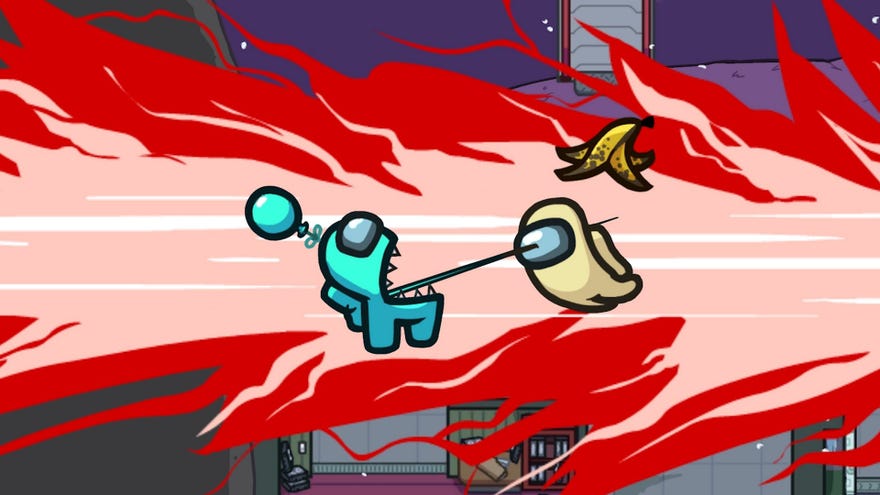Game devs announce plans to drop Unity, urge players to protest new per-install fees
"Stop it. WTF?"
Several game developers have called on their players to protest Unity's recently announced new pricing structure, under which developers who reach a certain threshold of revenue or game installations will be charged every time somebody installs their game. A few teams have also announced plans to dump Unity and move their projects to other game engines, such as Godot or Unreal.
Among those considering a trip to new pastures is Frogsong developer FrogteamGames. "While Frogsong is not currently close to this threshold, any future development in Unity has now become a financial risk for indie developers like ourselves," the studio wrote on Xitter.
"Free downloads are charged, which makes giveaways, charity bundles, and platforms like GamePass too high of a financial risk for us to be able to pursue. These fees do not benefit developers in any way, and instead can actively harm them."
There's confusion still about how Unity's new pricing policies (which don't kick in till January 2024) will be applied - the full FAQ is over here. The company have told Stephen Totilo of Axios that "charity games/bundles [are] exempted from fees", though how exactly Unity will distinguish between these and other games remains to be seen.
"Frogsong's Nintendo Switch port will continue to be developed in Unity," the FrogteamGames post continues, "as it's far too late to change engines, but we will not be working in Unity for future games. We cannot stand by these decisions, and we cannot afford the risk it would place on our small team.
"We urge you to take a stand with indie games, and call for Unity to reverse these harmful changes."
Among Us developer Innersloth also say they're looking into ditching Unity. "This would harm not only us, but fellow game studios of all budgets and sizes," the developer wrote in a statement to players. "If this goes through, we'd delay content and features our players actually want to port our game elsewhere (as others are also considering). But many developers won't have the time or means to do the same. Stop it. WTF?"
And then there's AGGRO CRAB, creator of aquatic soulslike Another Crab's Treasure. "We and a lot of other developers have a highly anticipated game coming to Xbox Game Pass in 2024," they posted following the Unity announcement. "Another Crab's Treasure will be free to install for the 25 million Game Pass subscribers.
"Unity could take a fee that puts an enormous dent in our income and threatens the sustainability of our business. And that's before we even think about sales on other platforms, or pirated installs of our game, or even multiple installs by the same user!!!
"This decision puts studios in a position where we might not be able to justify using Unity for our future titles. If these changes aren't rolled back, we'll be heavily considering abandoning our Unity expertise. We're calling on Unity to reverse the latest shortsighted decisions that seem to prioritize shareholders over their product's actual users."
Again, there's a certain amount of confusion here. Unity have said that "the Unity Runtime Fee will be charged to the entity that distributes the runtime", which in the case of a Game Pass release, would presumably be Microsoft. But even if studios like AGGRO CRAB aren't affected directly, the extra cost shouldered by Microsoft could be passed down to studios with projects on Game Pass.
Orbo's Odyssey developer Feverdream Softworks are among the more outspoken respondents. "If Unity goes through with this completely psychotic plan, I will be terminating all FDSW projects and migrating to a new engine," they wrote. "This will create heavy delays for Nowhere, MI. They're retiring unity plus and I refuse to pay $2,040 a year to remove their godawful splash screen."
The splash screen stuff refers to paying to have Unity's logo removed from opening screens, which will cost more under Unity's new pricing structure. Corpus Edax developer Luis G. Bento has notes on the subject:
There are also rumblings from publishers that they might not want to publish Unity games down the line, if the new pricing structure takes effect. "Definitely include what engine you're using in game pitches," Devolver Xeeted last night. "It's important information!"
To echo AGGRO CRAB above, the biggest question I have about Unity's announcement is how, exactly, Unity will distinguish between legitimate installs and, say, pirated copies of games, or players maliciously reinstalling games several times to punish developers who've done things they dislike, aka "install bombing".
The company have an obvious incentive to over-report the number, and are not willing to divulge how the system works. "We leverage our own proprietary data model, so you can appreciate that we won't go into a lot of detail," they wrote on Xitter. "But we believe it gives an accurate determination of the number of times the runtime is distributed for a given project."
It's a request for trust, then, and right now, many developers don't have much to spare.

